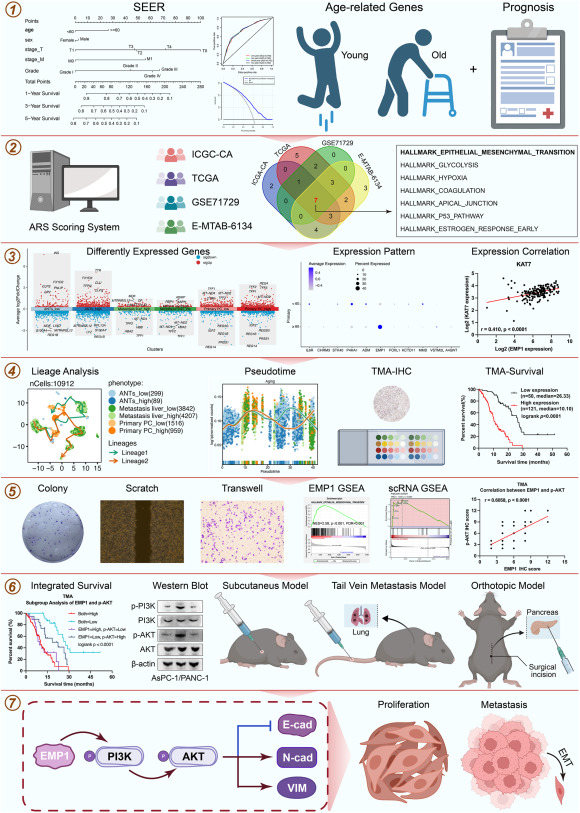
The role of the aging process and related factor EMP1 in promoting progression of resectable pancreatic cancer


Pancreatic cancer (PC) is a highly malignant neoplasm of the digestive system. The primary objective of this investigation is to elucidate the intricate mechanisms underlying the role of the aging process and the related factor Epithelial membrane protein 1 (EMP1) in PC progression. We established a prognostic model pertinent to the aging process that could be applied in postoperative PC patients. In vitro assays were employed to elucidate the impact of EMP1 on PC cell function. We employed lentiviral vectors for both knockdown and overexpression of EMP1 in Panc02 cells, followed by the establishment of subcutaneous, pulmonary metastasis, and orthotopic pancreatic liver metastasis models in mice. Using tissue microarrays, we evaluated the expression of EMP1 and its downstream entities, and then conducted clinical correlation analysis. A predictive Age-Related Score (ARS) system based on age-associated prognostic genes was developed, offering precise prognostic predictions for postoperative PC patients, which could be applied well at the single-cell level, showing diverse aging, epithelial–mesenchymal transition (EMT), cell migration, cell proliferation, and PI3K/AKT signaling activity in high and low ARS risk cells. EMP1 was identified as a pivotal molecule in the ARS system and is associated with poor prognosis. Besides, EMP1 could enhance the proliferation, migration, and invasion of PC cells both in vitro and in vivo by augmenting the PI3K/AKT signaling cascade. In essence, this research formulated an aging-centric prognostic model for postoperative PC and pinpointed EMP1 as an oncogenic factor facilitating tumor cell EMT during the aging trajectory in resectable PC patients.
